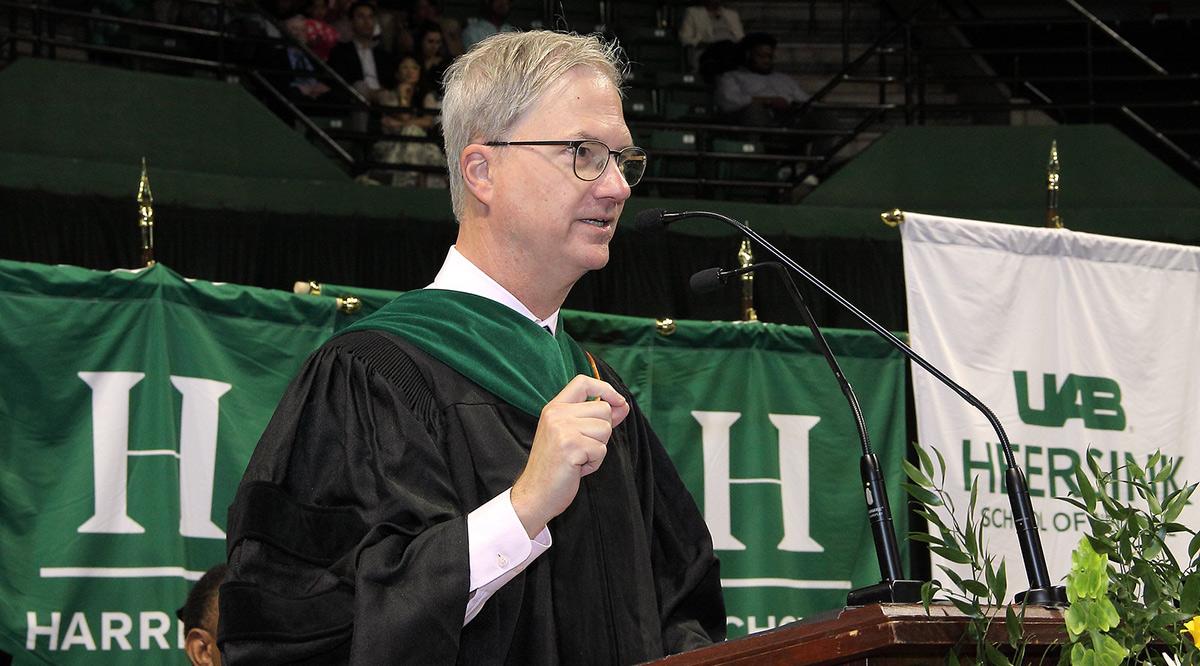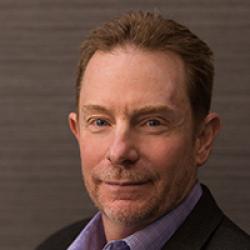At a time when the credibility of medical science and even scientists is under attack, Holden Thorp, PhD, has earned a reputation as a frank and direct analyst in the middle of the fray.
The editor in chief of the Science family of journals focuses his observations within the field — that is, on the practices of scientists and scientific journals. They have to change some of their thinking and behavior, Thorp says, in order to accurately get out their message amid an increasingly chaotic communications marketplace.
Among his messages: Focus on telling stories rather than on pummeling people with data.
“Anecdotes and storytelling are much more important in swaying public opinion and politics than the data are,” Thorp recently said in an interview with AAMCNews.
And be more transparent about the scientific process, including errors. Thorp was among the authors of a Science article that lamented, “When we contact authors about concerns that have been raised about their science papers, we are often met with defensiveness and denial.”
During Thorp’s tenure, Science articles have covered these challenges, laying part of the blame for increased government criticism of science on “sluggishness and defensiveness” among scientists, and hailing fast and frequent corrections in scientific journals as “courageous.”
Thorp will address communication about science and the results of medical research during a plenary session at Learn Serve Lead 2025: The AAMC Annual Meeting, on Nov. 4. The session will explore how shifts in journalism, government, and public discourse have reshaped the role of science in society, and on how to communicate about science effectively in a divided country.
Before taking the helm at the Science journals, published by the American Association for the Advancement of Science, in 2019, Thorp served as chancellor at the University of North Carolina at Chapel Hill and provost at Washington University in St. Louis. He is a professor at George Washington University in Washington, D.C.
This interview has been edited for brevity and clarity.
How can we talk about science to the public and make it matter?
The most important conversations about this occur close to the ground: with the physicians and other medical professionals who are trained by medical colleges. Talking to their patients is more important than anything anybody says on TV or in an op-ed or on a podcast. Those are people dealing directly with somebody [a patient] who is putting their trust in them. The rest of us just look like somebody on TV in a white lab coat; they [the audience] don’t know who we are and what our motives are.
Scientists who are good at doing science sometimes make the mistake of thinking that we’re good at other things. That’s because science is hard, and we figure if we can do that, we can do almost anything else.
But communication is just as challenging, if not more so. We need to give more deference to the people who have training and experience doing that, and get them to do more of that for us, rather than us going on TV and spitballing. That has gotten us into the sand trap that we’re in with regard to trust in science and medicine.
Building on that challenge: How has reporting on science and research changed in recent years in ways that affect how scientists communicate to the public? When I say reporting, I think we need to include blog posts, podcasts, et cetera.
We’ve made another kind of elitist mistake there, thinking that people who were on Twitter and on podcasts and on YouTube who weren’t trained were going to fizzle out. They didn’t. We made the mistake of thinking that the data would ultimately win.
Most people who understand politics and public opinion know that anecdotes and storytelling are much more important in swaying public opinion and politics than the data are. There are a lot of people on podcasts and on social media and on YouTube who are very good storytellers, and most of the time they have something that’s enough of the kernel of truth that they can use that to create what seems like a trustworthy story. A lot of times that kernel of truth that we’ve given them is a mistake that we [scientists] may have made.
One of the things I hear a lot from people is, “But they’re just reporting on this one outlier event.” Guess what? The one outlier event is all they need. We have to figure out a way to stop giving them that anecdote, rather than hoping that one day they’ll realize that the majority of scientists are honest and the majority of papers are correct.
Do you see what scientists are now facing as part of a larger culture war, values conflict, or political realignment?
There’s a general effort against higher education; science is collateral damage. But I think there’s also anger about the COVID pandemic, and the extent to which it appears that [alternative] ideas about how to [address it] were squelched by the scientific and medical establishment.
My approach to this has been, rather than to be reactive toward the [Trump] administration, to say, “What are the aspects of the scientific enterprise that we would choose if we could do it from scratch?” Let’s start doing that, rather than saying, “We have to do this in response to the administration.”
Most scientists are in the same boat that I am. What can I do? I can try to help us build a scientific enterprise that won’t be as easy to attack. To do that, we need to do a better job recognizing that the public is investing in this and we owe them a debt of gratitude, rather than simply lecturing to them on TV about all the great things we found.
We need to treat our graduate students and postdocs and residents and medical students like they’re the most important people in the enterprise, to make sure they have the best support they can possibly get, rather than making them feel like cheap labor.
We all need to be committed to maintaining the highest possible level of integrity. When we’re questioned, rather than dismissing the people who are questioning us as being against science or trying to undermine us, [we need] to show that we’re open to discussing our research findings with anybody.
Assuming we survive, we’ll be in a position where we won’t be as easy to attack.
It might be very difficult for any scientist or doctor to push back on misinformation without seeming like they’re getting into a political fight with a patient or an influencer.
The question is, what can we do that will convince the largest number of people? That’s probably to focus on the people who are more persuadable rather than the people who have been convinced that what we’re saying is wrong.
I have the highest admiration for physicians who are on the front lines. I gave the graduation speech at UAB Medicine [University of Alabama at Birmingham Heersink School of Medicine] this year. I said, “We’re putting a lot on your shoulders, because you’re the ones that are going to be dealing with the people who have been told by Google or some podcast that something [you recommend] is not good for them. You’re also the people who have the most ability to influence the extent to which people trust us, because there’s nobody in Washington or Boston that can write an op-ed or give a speech that’s going to solve this.”
It’s got to be done one patient at a time. And these physicians that we’re producing in medical colleges are the ones who have that on their shoulders.
You’ve written about the need for scientists and journals to publicly acknowledge corrections to papers more often and more quickly. But we know that corrections do not necessarily build credibility. Sometimes, people think, “You messed up again.”
The high road is to make the corrections. That’s what we should be doing. I can see how the corrections, taken in isolation, say to the public that we made mistakes. But if we don’t make the correction, we’re giving the people who are attacking science an even better anecdote to use against us.
Finally, who is a scientist? You’ve written on Substack, “In my view, anyone who can contribute to the scientific enterprise is a scientist.” Can you expand on that?
Most people who contribute to the scientific enterprise have done science at some point. They’re not just reading and blogging about it.
I was thinking of the prejudice and chauvinism that a lot of people in science have toward science journalists, people who work at museums, people who work in scientific publishing, people who are good at science policy, people who are good science communicators. These folks are doing vital tasks for the scientific enterprise. A lot of people with the pipettes in their hands are not treating everybody else in the scientific enterprise with the respect and appreciation that they deserve.
The thing that just makes my head explode is when people complain to me that the editors who work for Science aren’t scientists. They [editors] went to graduate school, they went to postdoc, they read 500 papers a year. They go to conferences. You’re telling me that they’re not scientists?
That kind of elitist garbage is not helping anybody. When it gets out to the public, they look at us like we’re exactly what they think we are: We’re talking down to people and not willing to let people into our world.

